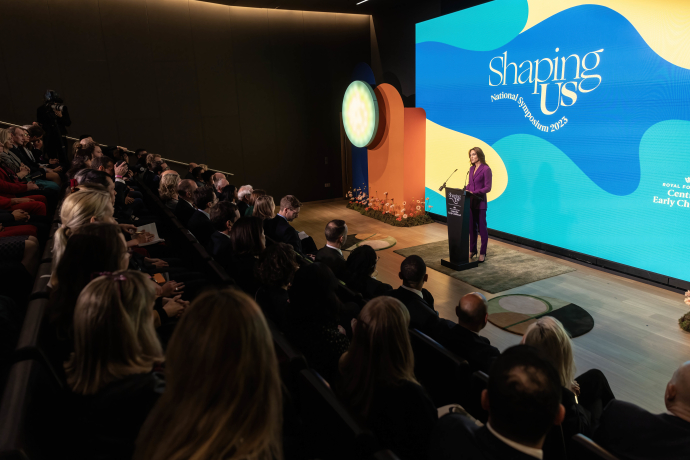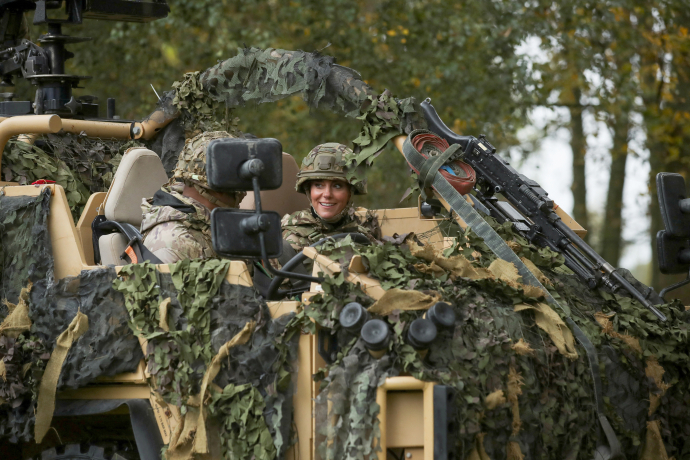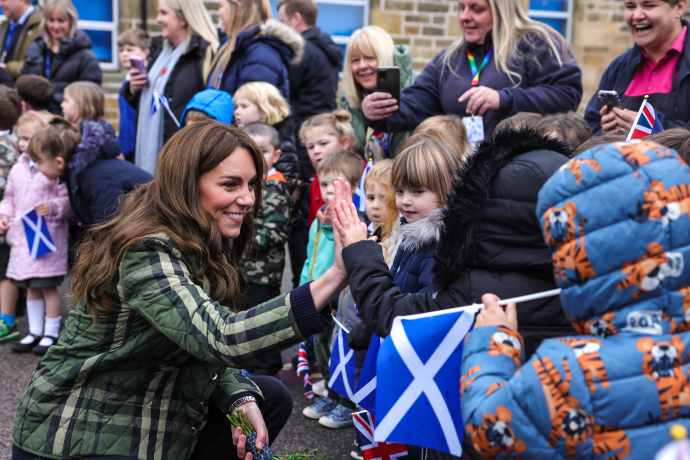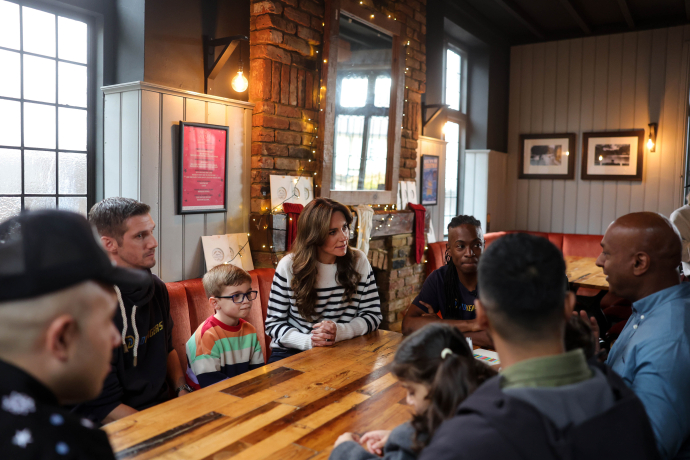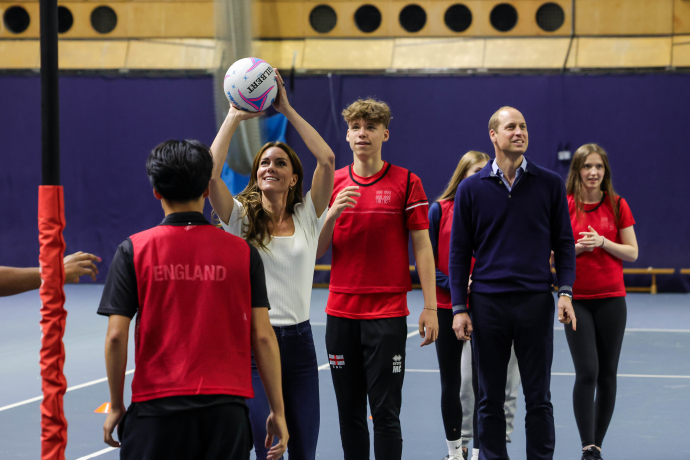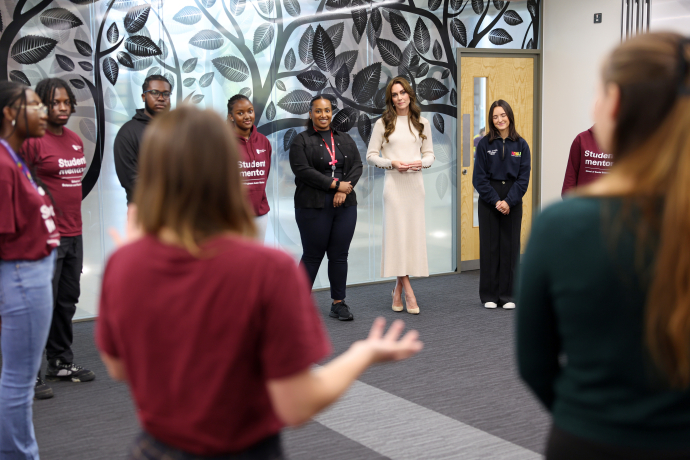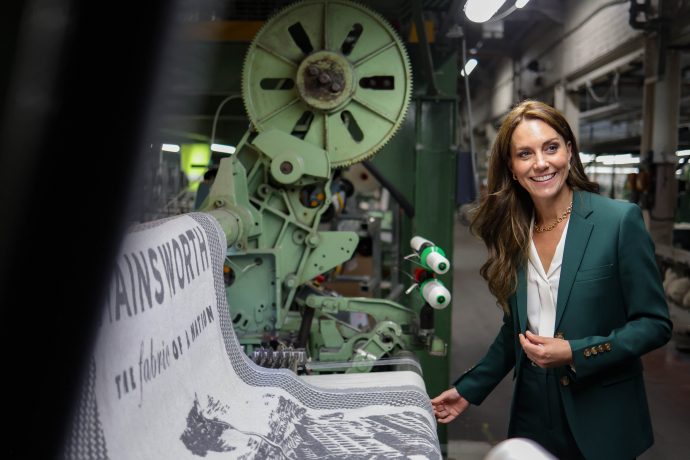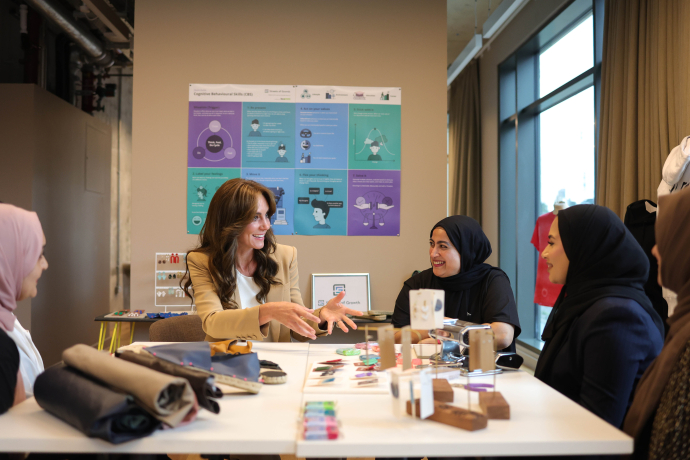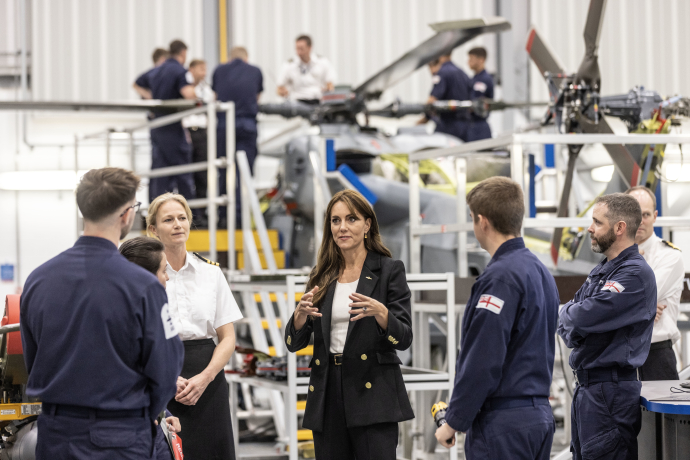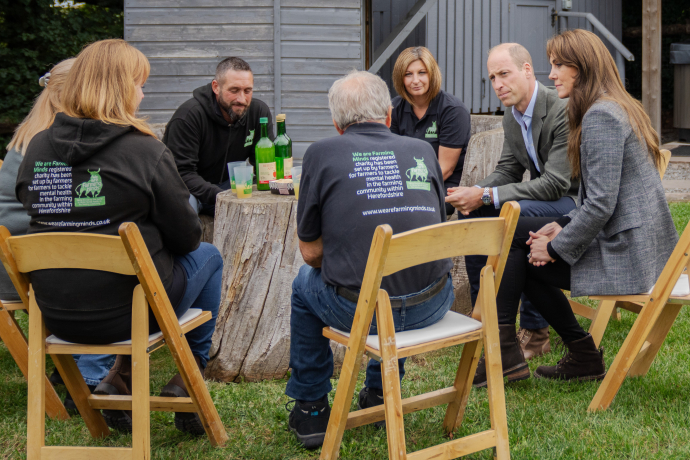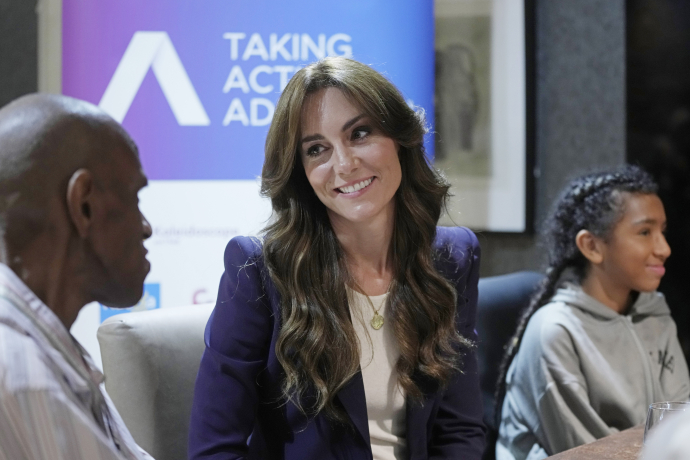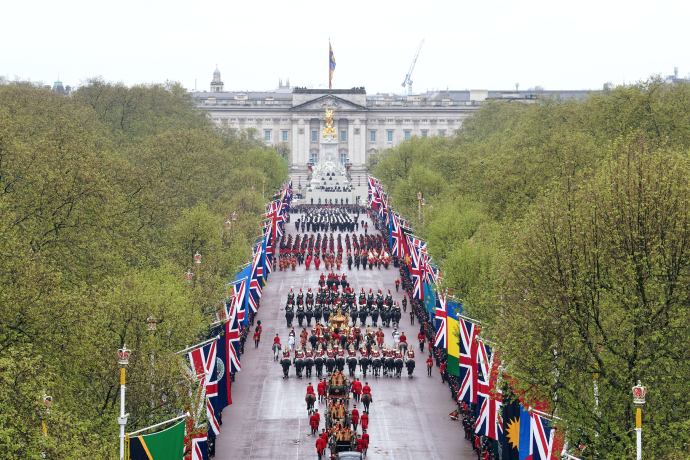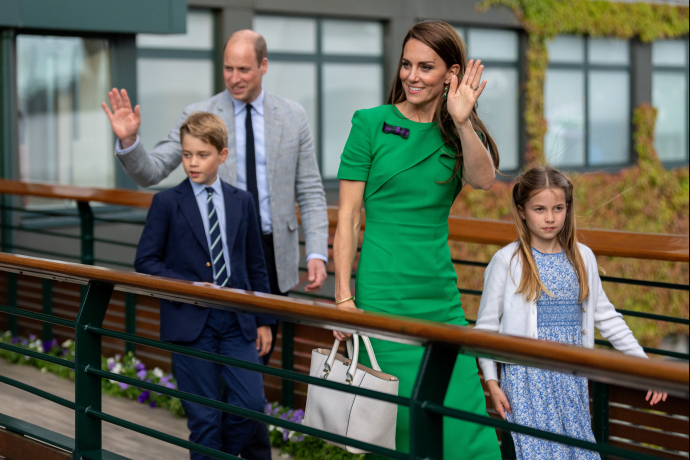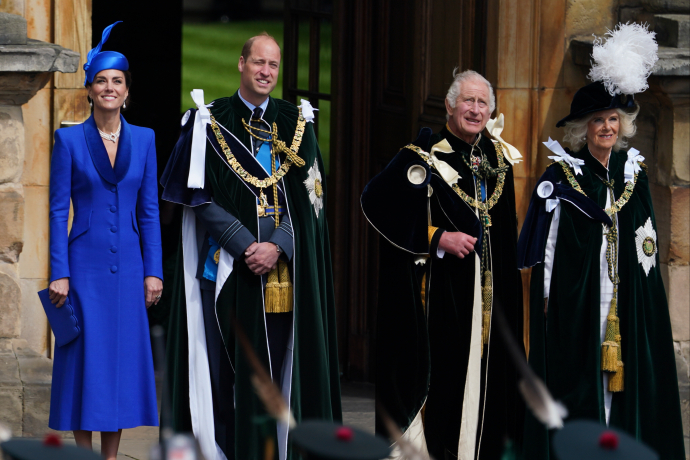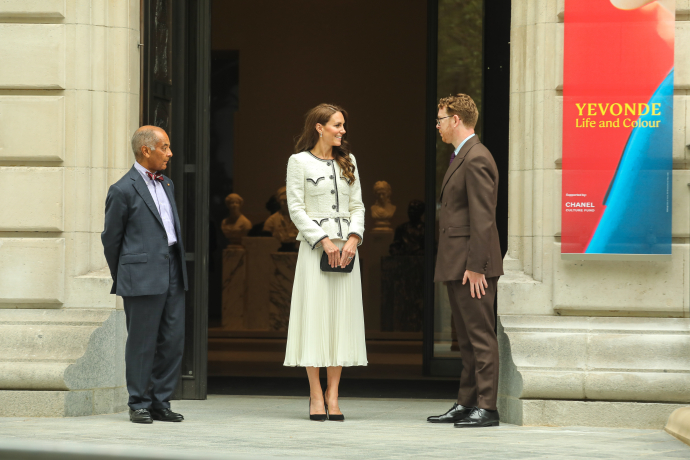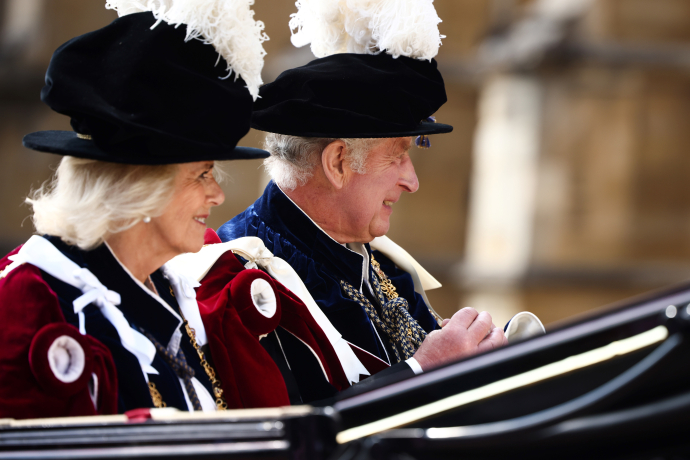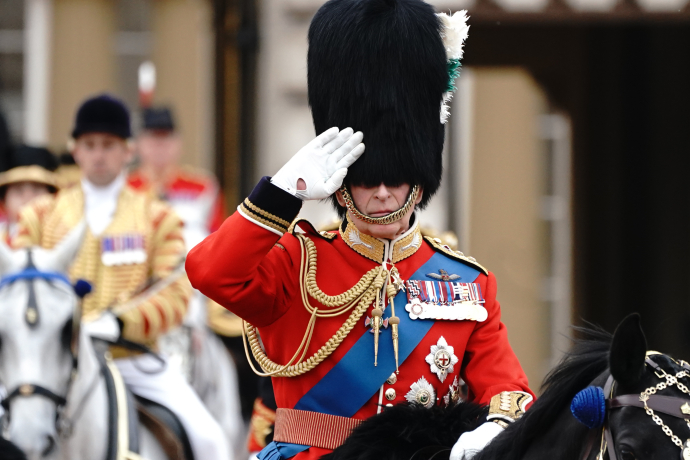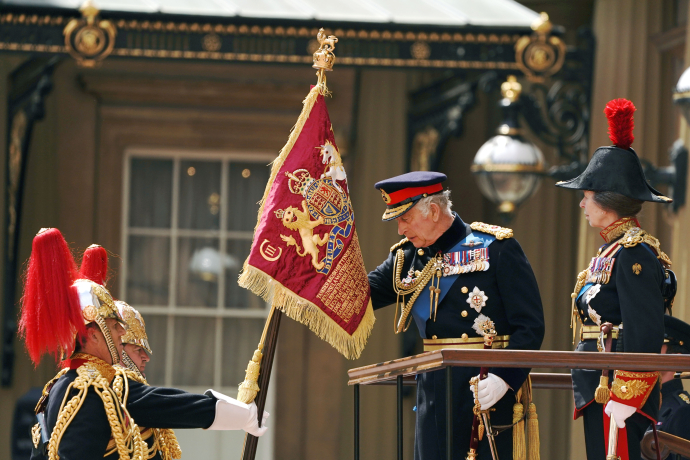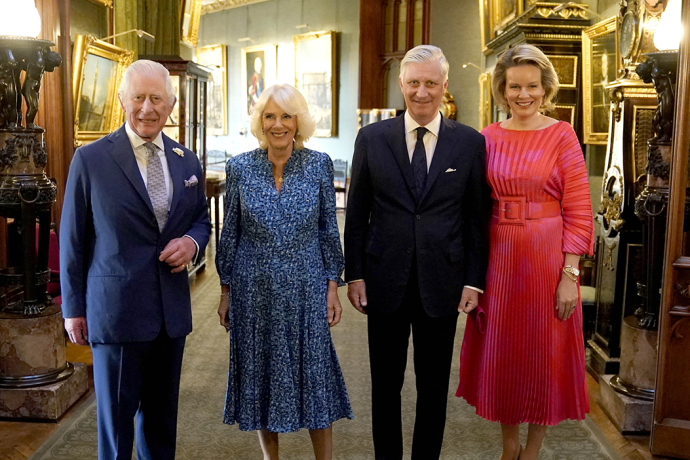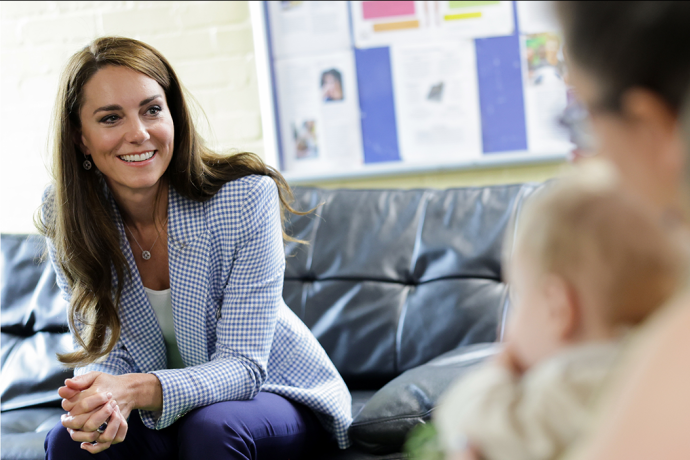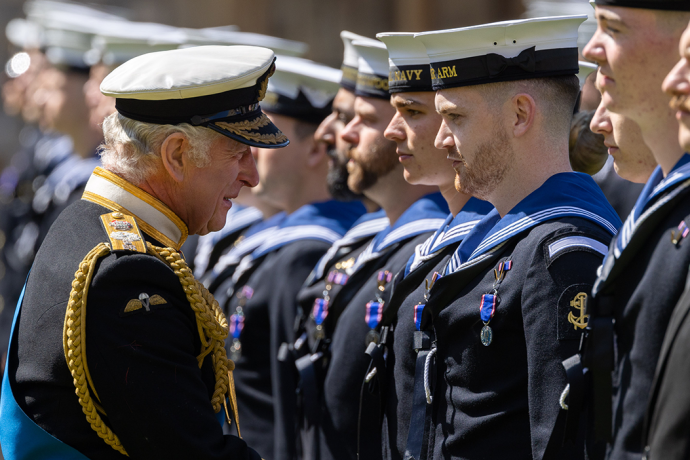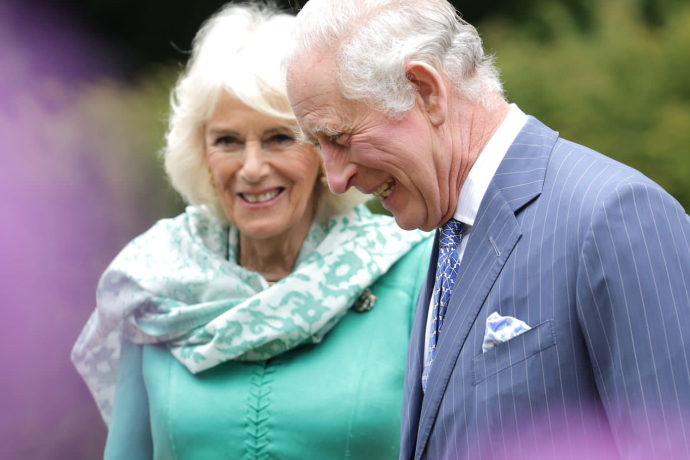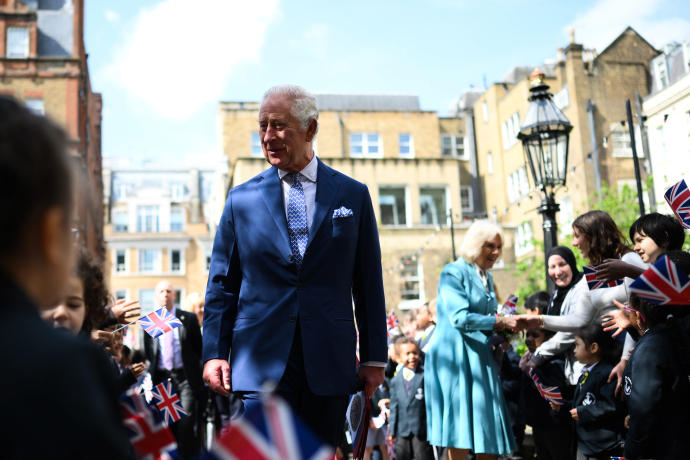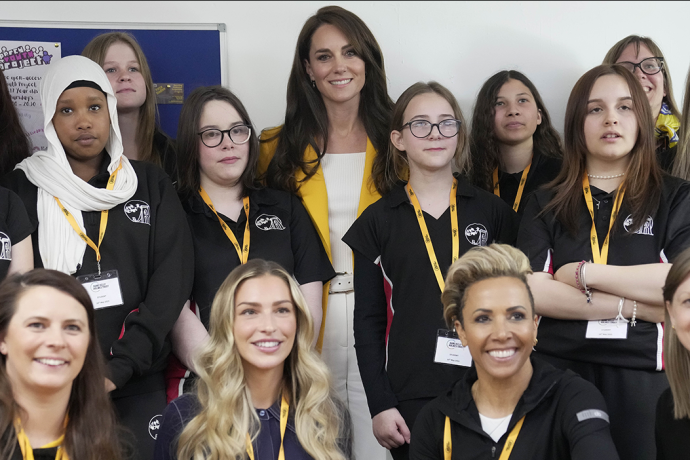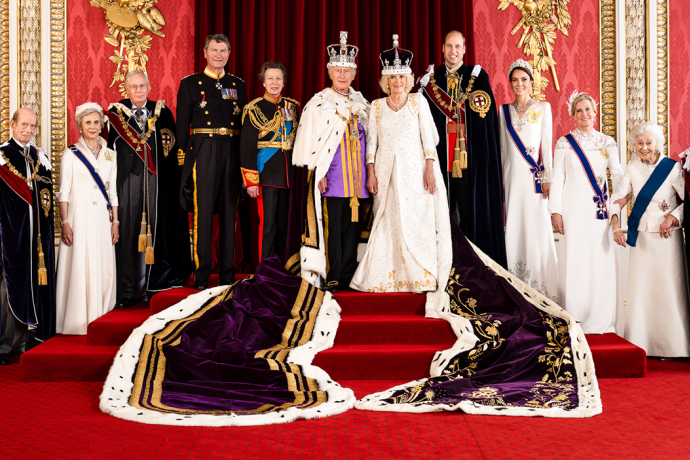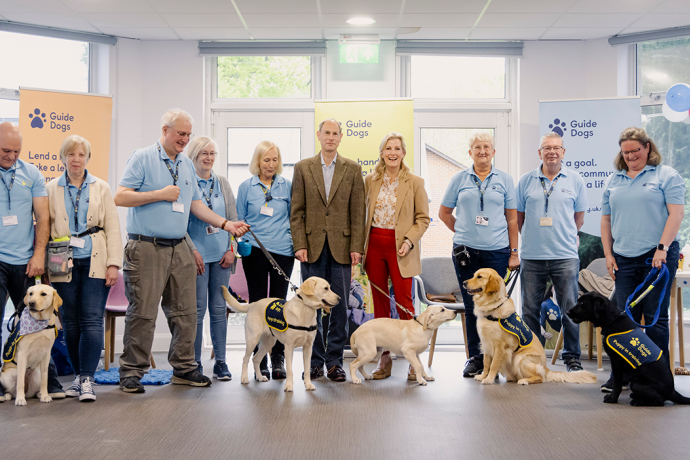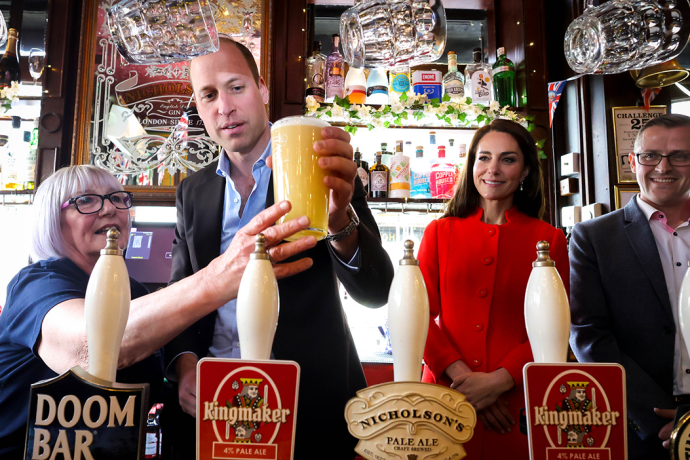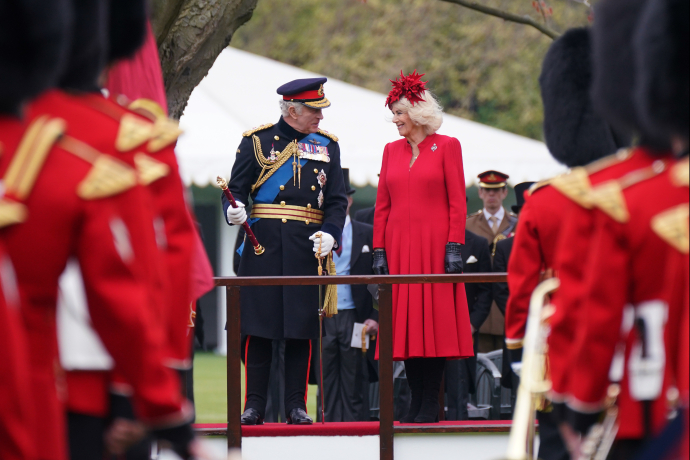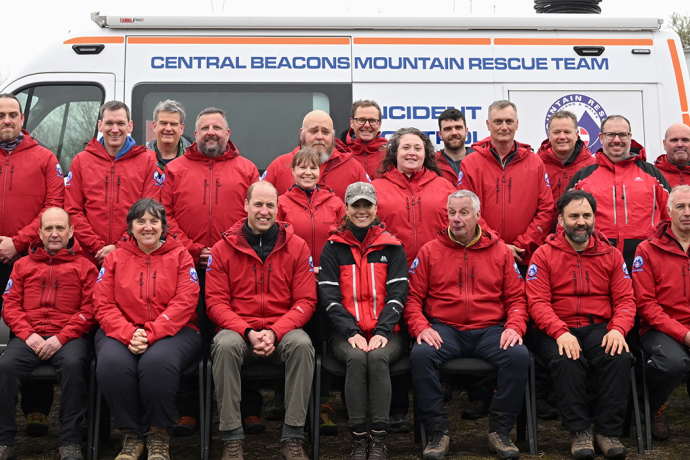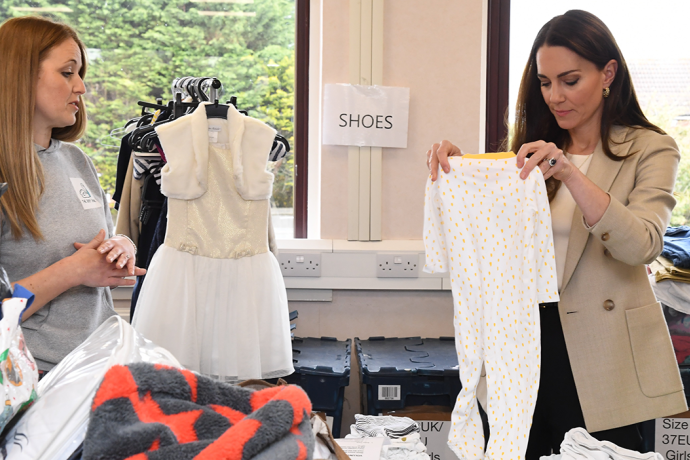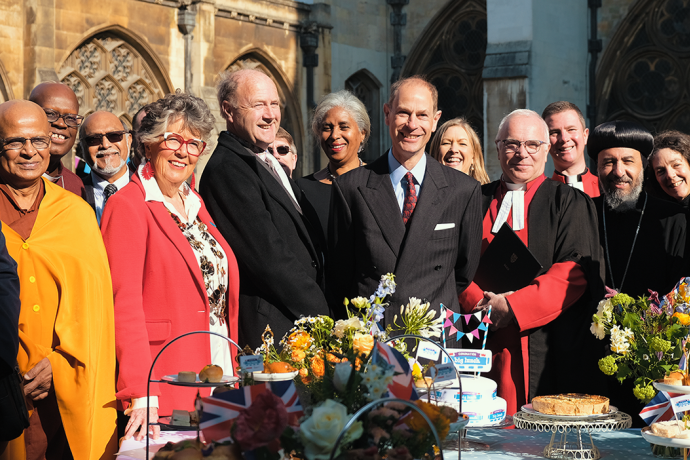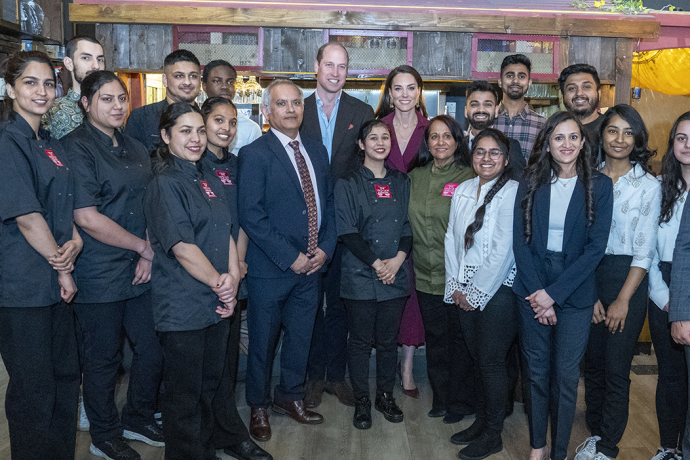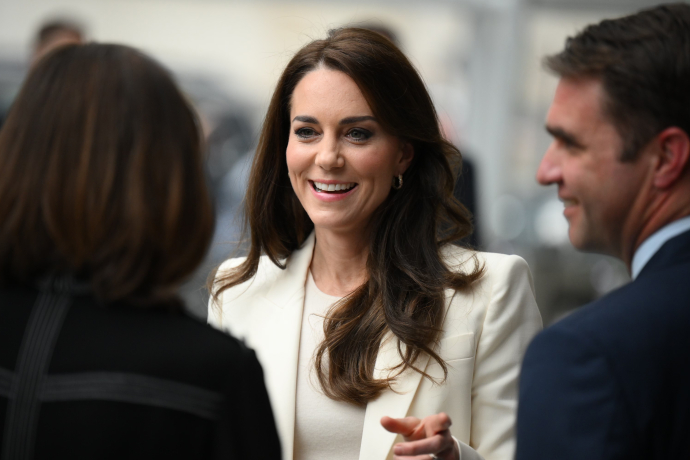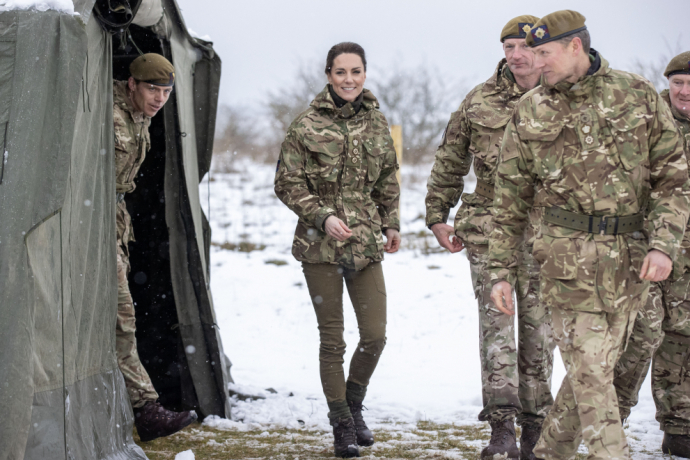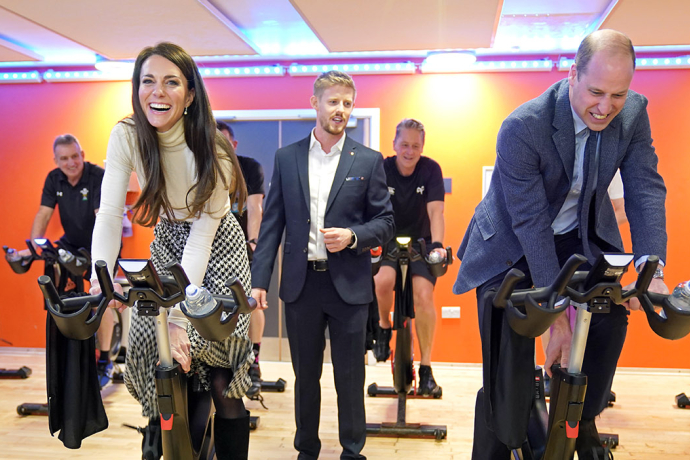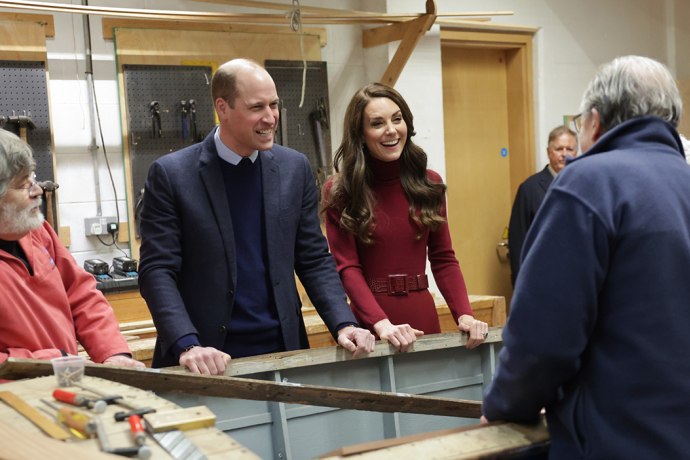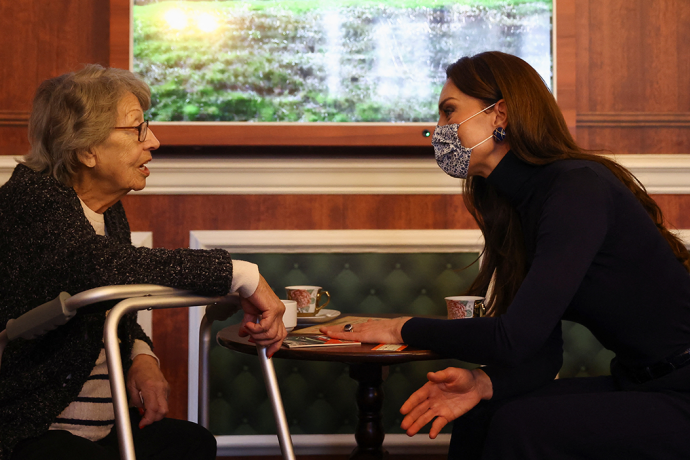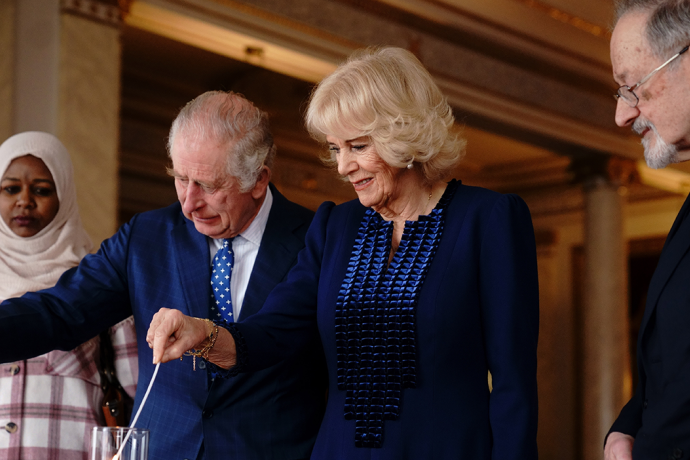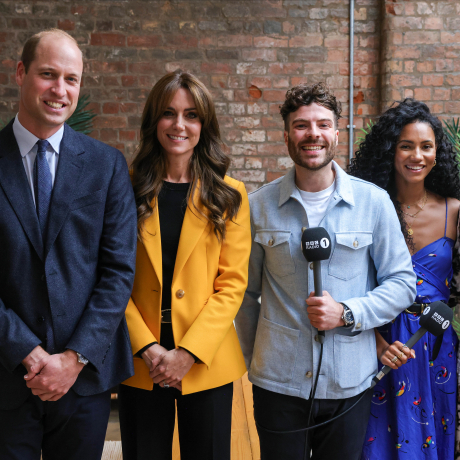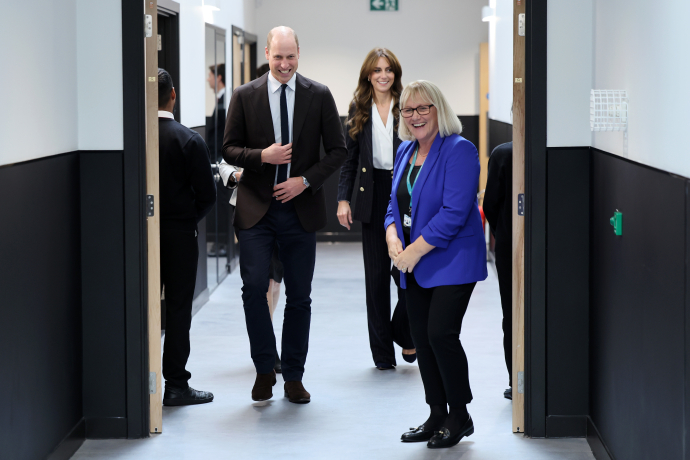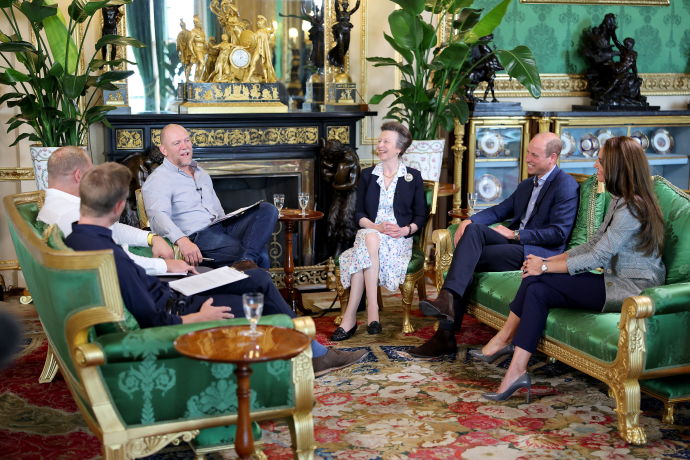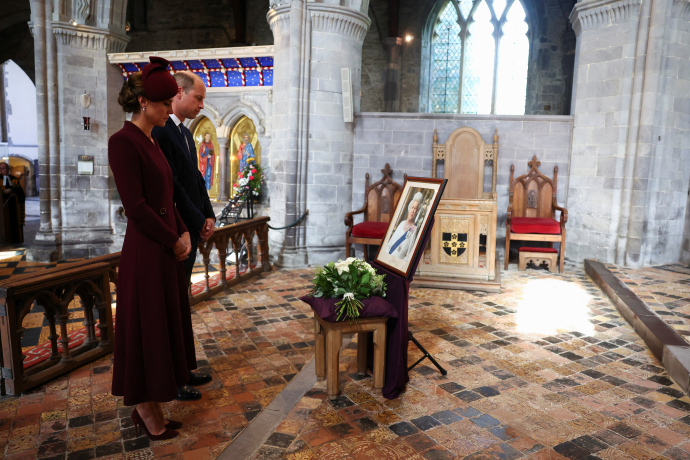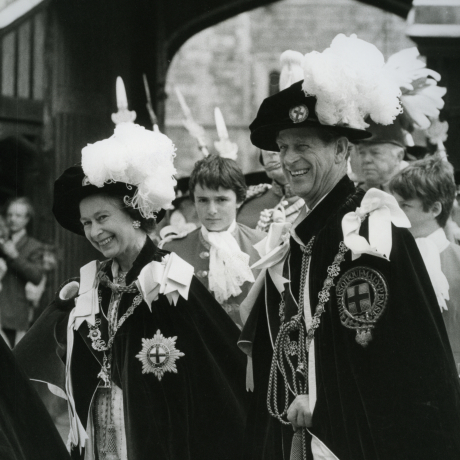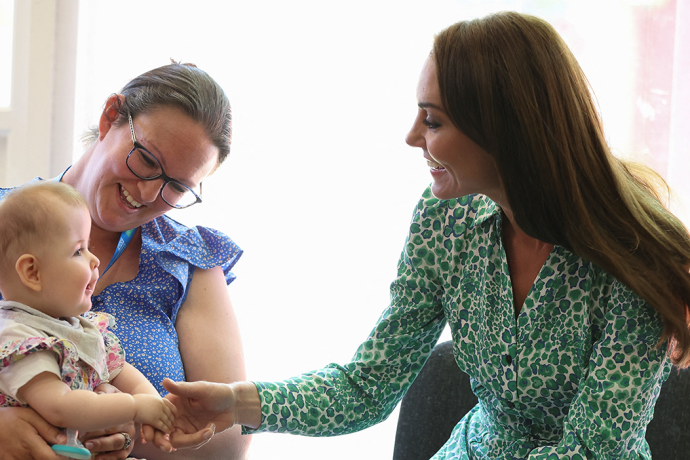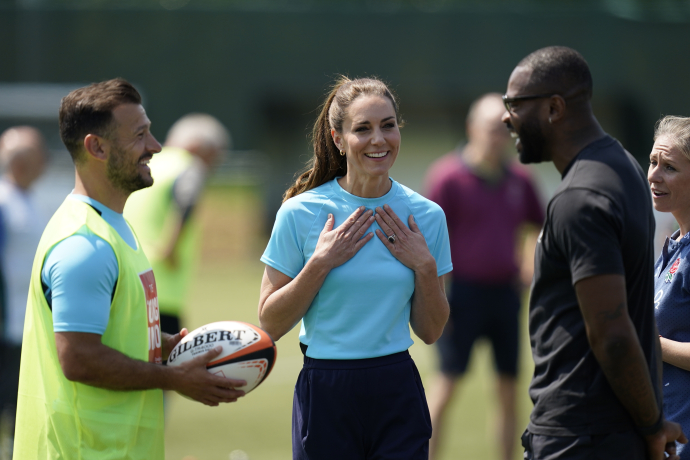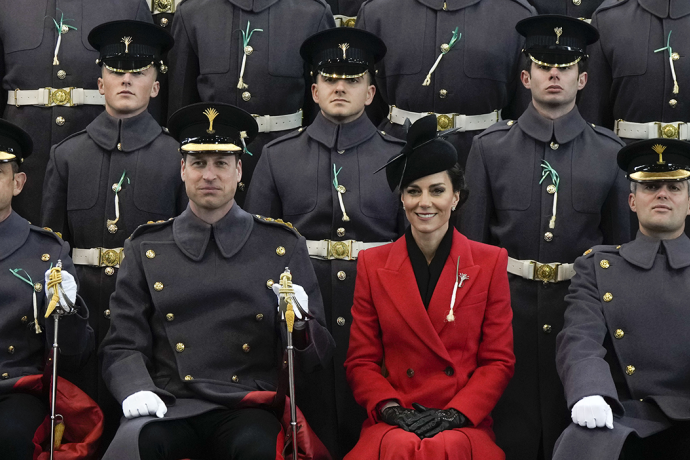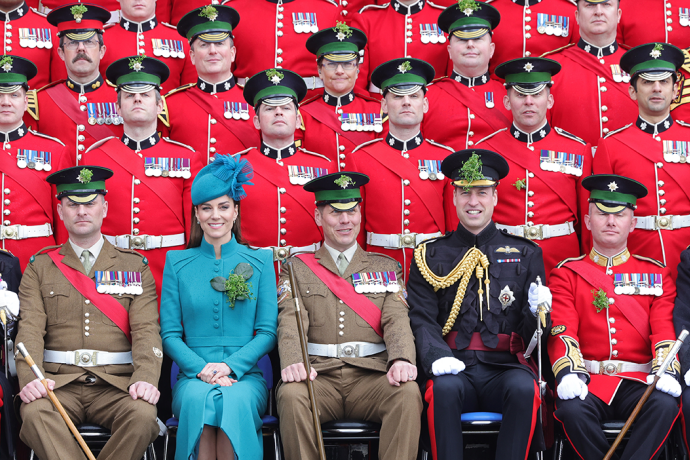The Princess of Wales undertakes engagements to highlight the importance of relationships in early childhood
Published
The Princess of Wales has carried out engagements in London on Thursday 25th May to highlight the importance of nurturing relationships throughout early childhood and beyond, including those outside of ‘traditional’ parent and child settings.
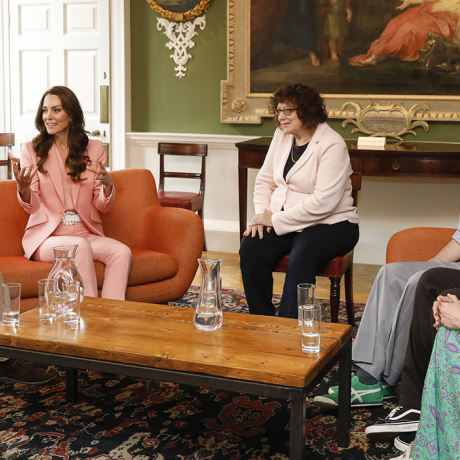
Her Royal Highness’ visits focused on the increased importance of strong, loving and consistent relationships to children who experience adversity, trauma, or bereavement in early life. The visits also highlighted the experiences of those who have spent time in the care system and the experience of carers such as those who have fostered, adopted, or taken care of extended family and friends, known as kinship carers.
The Foundling Museum
The Princess of Wales, Patron of the Foundling Museum, visited the Museum in London to meet those with lived experience of the care system, as well as with foster carers and adoptive parents to hear about their experiences.
Her Royal Highness met care leavers who are being supported by the Museum, before spending time with adoptive parents and foster carers to discuss the lifelong impact that positive, supportive relationships can have for children and young people.
The Foundling Museum tells the history of the Foundling Hospital, the UK’s first children’s charity which was founded in 1739 as a home for children whose mothers couldn’t keep or care for them. The Museum delivers training, mentorship programmes and creative projects, led and developed by contemporary artists, writers and musicians, and continues to use creative action to transform and improve the lives of care-experienced young people.
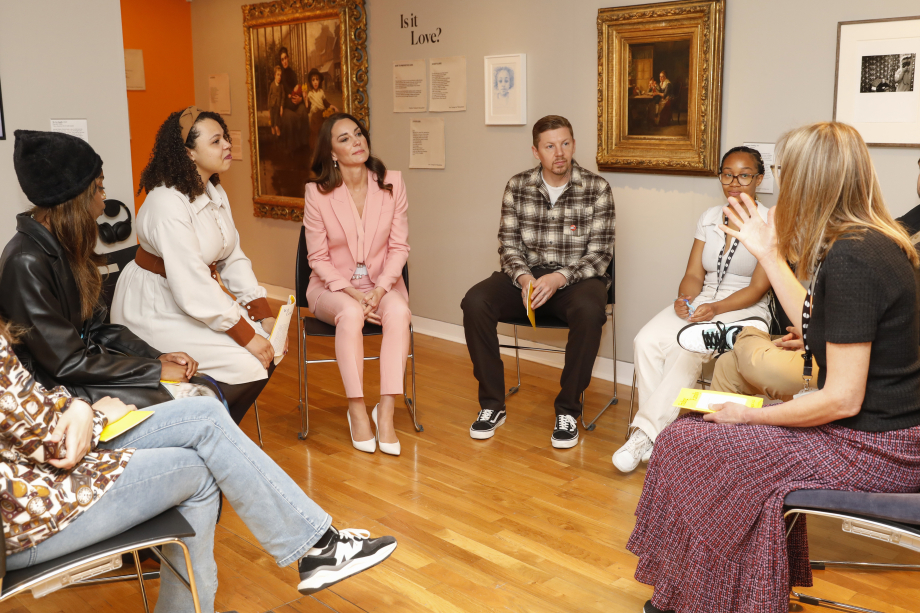
Since 2017, the Foundling Museum has delivered an award-winning Tracing Our Tales programme to care-experienced young adults. The programme enables its trainees to gain the skills and confidence needed to deliver learning programmes at the Museum, to return to education and to secure apprenticeships and jobs, alongside skills in art and creative expression.
During her visit, The Princess also met trainees who have taken part in the scheme’s creative-writing programme. The themes of the Museum’s current exhibition Finding Family inspired the trainees to create poetry, and Her Royal Highness joined a conversation between them and Professor Green to hear more about how creative writing has helped them to express their emotions and own lived experiences.
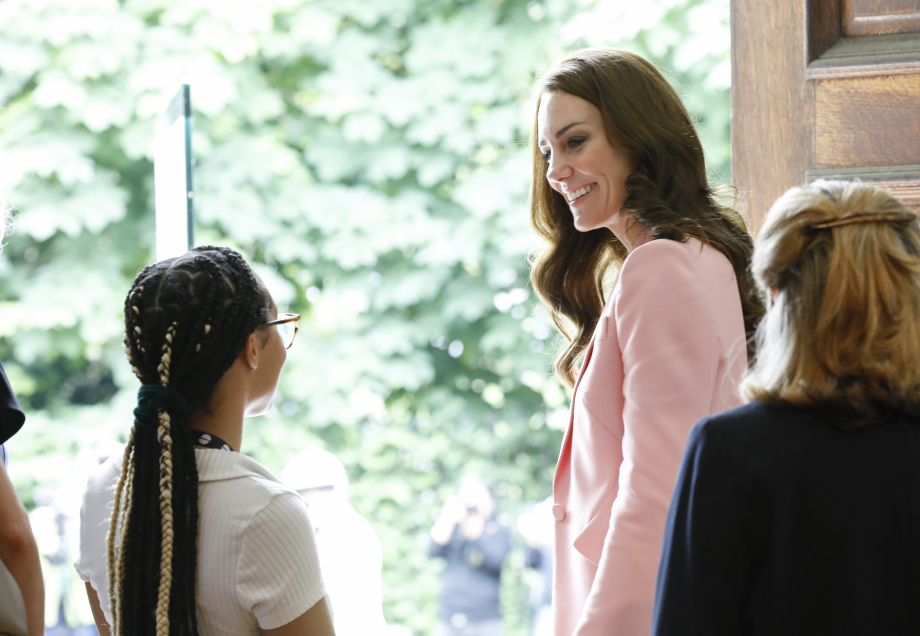
Her Royal Highness then met a small group of adoptive and foster parents to hear about the efforts they have undertaken to support young people who have experience of the care system. They discussed the importance of ensuring that every child has supportive and loving networks around them as well as the opportunity to build positive, lasting connections with others.
Kinship Carers
The Princess of Wales then met kinship carers at a support group session in London to hear about their experiences of raising the child of a relative or friend and the vital role they play in raising the next generation. Kinship care is when a child is looked after by their extended family or close friends if they cannot remain with their birth parents.
Her Royal Highness met group of kinship carers who have been supported by Kinship, a leading charity, and who are at different stages of their kinship care journey, with some very early on in the process and others who have been caring for a much longer period of time. Carers will include aunts and uncles, grandparents, as well as Professor Green who was raised by his grandmother.
The Princess discussed with them the important role that they play in a child’s development, the challenges they face and the support available to them provided by charities such as Kinship.
There are over 162,000 children being raised in kinship care in England and Wales, many of whom who have experienced trauma in their earliest years, and who benefit from family members or friends being able to step up and care for them. Kinship carers face unique challenges when taking on the responsibility of raising a child, often welcoming children into their homes with very little notice and they themselves managing the emotional impact of whatever has occurred to the child’s birth parents.
Kinship supports more than 10,000 kinship carers in England and Wales each year through free training sessions, peer support groups, one-to-one support, an expert advice line and their online information and support hub.
The Princess of Wales and her work with Early Childhood
The Princess has dedicated her time to raising awareness of the critical importance of early childhood and in January 2023, with The Royal Foundation Centre for Early Childhood, launched Shaping Us, a long-term campaign.
The Shaping Us campaign aims to transform the issue of early childhood from one of scientific interest to one of the most strategically important topics of our time. The campaign also highlights that, by focusing our collective time, energy, and resources to build a supportive, nurturing world around all children and those caring for them, we can make a huge difference to the physical and mental health and happiness of generations to come
Related content
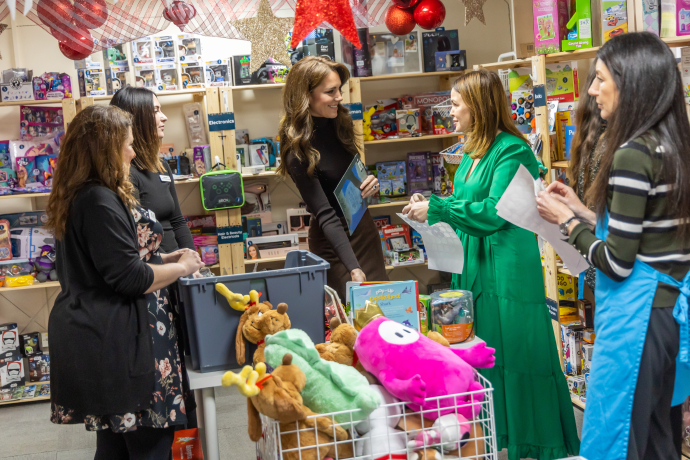
The Princess of Wales delivers keynote speech at Shaping Us National Symposium
15 November 2023